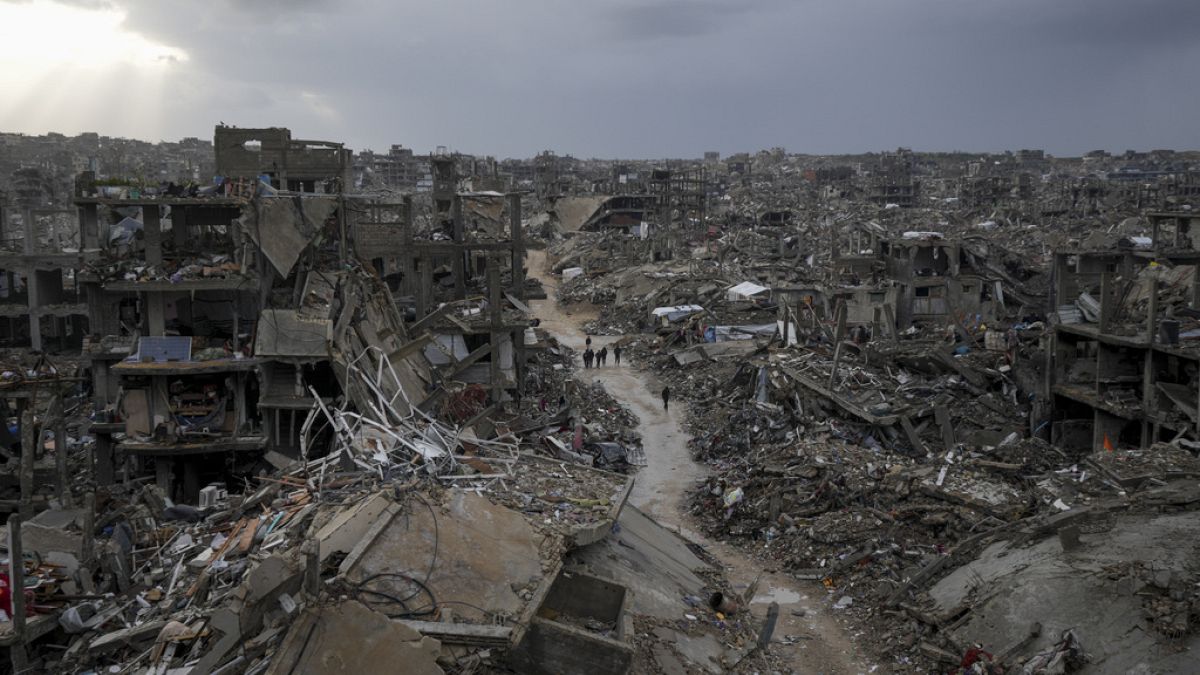Europe
Trump’s plans for Gaza ‘clearly catastrophic’, researchers say

The Israeli Defence Minister Prepares for the "Voluntary Departure" of Gazans
The Israeli Defence Minister, Israel Katz, has ordered the army to prepare for the "voluntary departure" of the inhabitants of the Palestinian enclave in Gaza. This directive follows recent statements by former U.S. President Donald Trump, who suggested a controversial plan involving the expulsion of Gazans to neighbouring countries and transforming the Gaza Strip into the "Riviera of the Middle East." Although the White House later downplayed Trump’s remarks, the proposal has sparked widespread concern among experts and regional stakeholders. The idea of relocating 1.8 million Gazans to countries like Egypt or Jordan has been met with criticism, as it echoes the forced displacements that occurred after the creation of the State of Israel in 1948 and 1967.
A Controversial Plan with Far-Reaching Consequences
Trump’s plan, which includes American control of the Gaza Strip, the expulsion of its inhabitants, and its transformation into a luxury destination, has been described as "catastrophic" for Gaza and destabilising for the region. Hugh Lovatt, a researcher at the European Council on Foreign Relations (ECFR), warns that such a proposal would have dire consequences. "Imagine a million Gazans being moved to Egypt, a country with limited economic possibilities and few historical or cultural ties to Gaza. The reality is that many of these displaced individuals would not stay in Egypt. Thousands, if not tens of thousands, would seek better economic opportunities further afield, including in Europe," Lovatt explains. This scenario raises significant ethical, legal, and logistical concerns.
A Breach of International Law
Many experts argue that Trump’s plan violates international law, which prohibits forced displacement and ethnic cleansing. Michael Wahid Hanna, director of the U.S. programme at the International Crisis Group, emphasizes that "forced displacement and ethnic cleansing are not permitted under international law. This would constitute a war crime and an international crime." Egypt and Jordan, the proposed destinations for the displaced Gazans, have already rejected the idea. The plan is not only legally problematic but also politically and socially explosive. It would likely provoke widespread outrage among Arab populations, who would view it as a form of ethnic cleansing and an attack on Palestinian rights.
Regional Instability and Unrealistic Expectations
The proposal to relocate Gazans is also seen as unrealistic and ill-conceived. Lovatt describes it as a "distraction" from the real issues that need to be addressed, such as securing a ceasefire between Israel and Hamas, stabilising Gaza, and achieving lasting Israeli-Palestinian peace. Meanwhile, experts like Wahid Hanna point out that the plan would be deeply controversial within Arab nations. For example, in Egypt, the idea of accepting large numbers of Gazans would be met with resistance from the military and security forces, who have long regarded the displacement of Gazans as a red line. The political and social fallout of such a plan would be immense, with potential destabilisation across the region.
The European Union’s Cautious Response
The European Union has so far maintained a cautious stance on Trump’s proposal, limiting its response to reaffirming its support for a two-state solution and emphasizing that Gaza is an integral part of a future Palestinian state. While the EU’s position reflects its commitment to international law and regional stability, its relative silence on the issue has not gone unnoticed. Many observers argue that the EU should take a more proactive role in addressing the crisis in Gaza and countering proposals that violate international law and regional peace.
The Need for Meaningful Dialogue and Peaceful Solutions
Despite the controversy surrounding Trump’s plan, experts like Lovatt argue that it is essential to engage with the proposal because of its potential to shape U.S. policy and influence the region. However, they stress that the focus should remain on addressing the root causes of the conflict and working towards a sustainable and just peace. This includes ending Hamas’s governance in Gaza, stabilising the enclave, and unlocking Israeli-Palestinian and regional peace. Lovatt calls for renewed efforts to secure a ceasefire, promote economic development in Gaza, and create conditions for meaningful dialogue between Israelis and Palestinians. Only through such efforts can the region hope to achieve lasting stability and prosperity.
In conclusion, while Trump’s plan for the Gaza Strip has sparked alarm and controversy, it also underscores the urgent need for a comprehensive and inclusive approach to resolving the Israeli-Palestinian conflict. The international community must remain vigilant in upholding international law, rejecting proposals that perpetuate displacement and suffering, and fostering conditions for peace and cooperation in the region.











